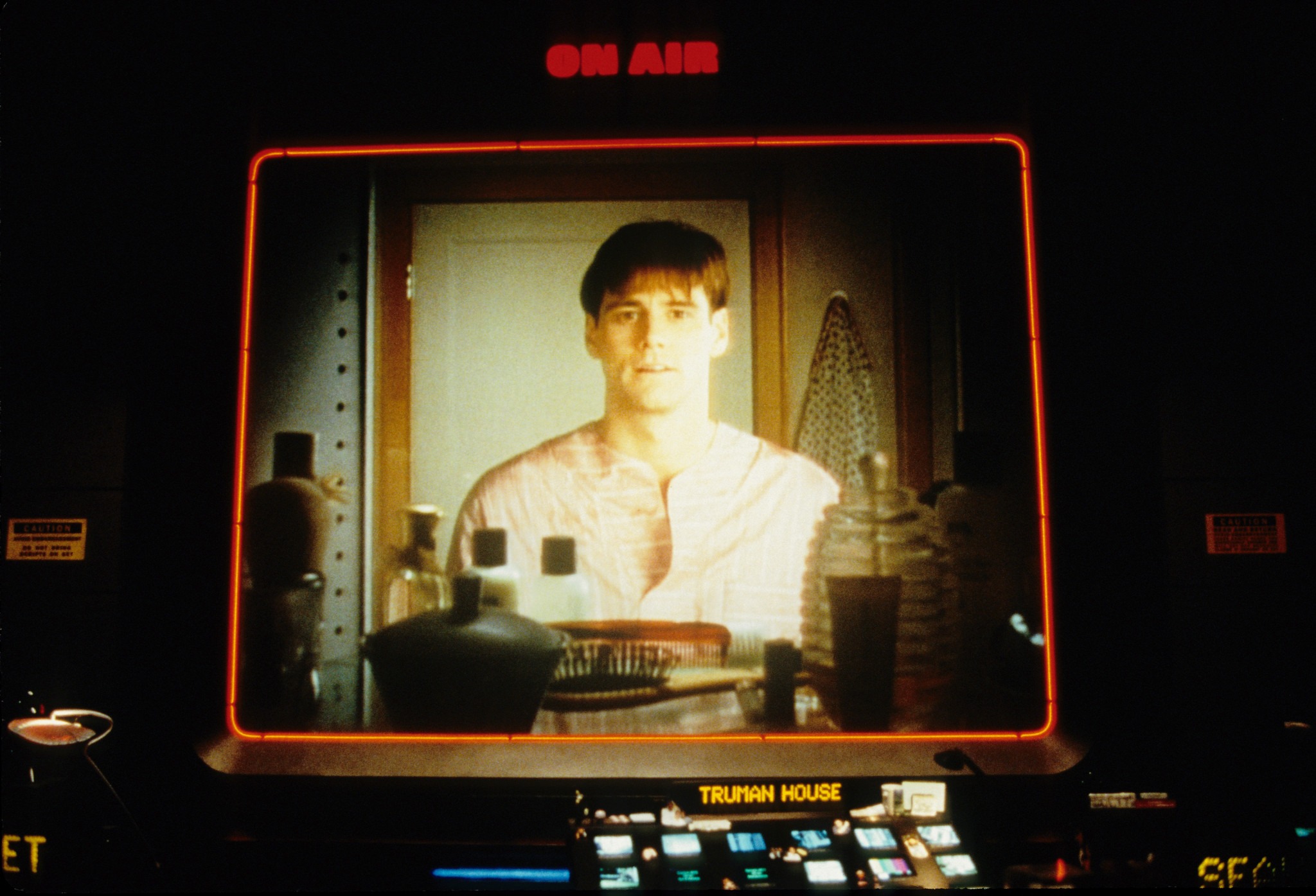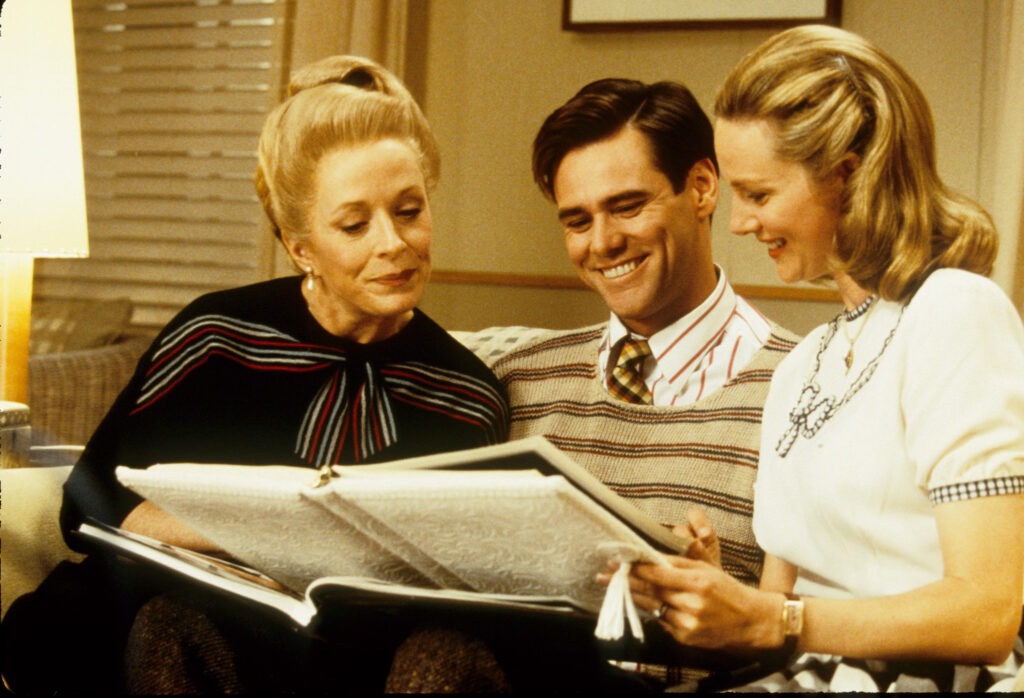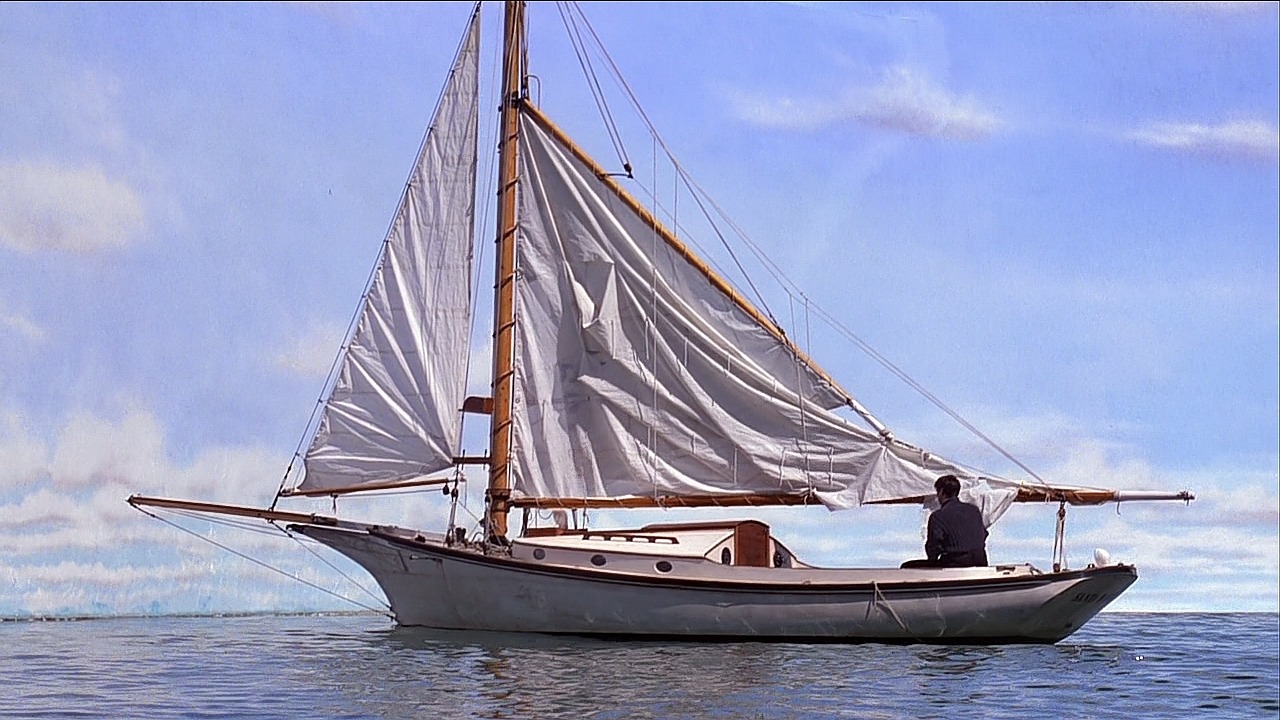
From the moment he was born, Truman Burbank’s life was not his own. Selected at birth and legally adopted by a television studio following an unwanted pregnancy, Truman became the unwitting star of The Truman Show, a groundbreaking reality program broadcast 24/7 to millions of viewers worldwide. Seahaven Island, his idyllic hometown, was an elaborate illusion—a sprawling soundstage controlled by Christof, the show’s visionary creator and executive producer. Through five thousand hidden cameras, Christof orchestrated every detail of Truman’s existence, from the weather to the people he interacted with, all while the world watched in fascination.
To keep Truman from discovering the truth, Christof carefully constructed a life full of subtle barriers. The supposed death of Truman’s father in a boating accident left him with a crippling fear of water, reinforced by ominous news reports and the constant dangers of travel. Truman’s world revolved around the virtues of staying home, with actors and crew members reinforcing these messages at every turn. Even his relationships were choreographed, including his passionless marriage to Meryl, a woman he was manipulated into loving. Every aspect of his life, from his career to his friendships, served the narrative Christof designed. Meanwhile, the studio reaped profits through clever product placements woven seamlessly into the fabric of Truman’s existence.

But despite Christof’s meticulous control, cracks began to form in the facade. Truman’s heart strayed from the script when he met Sylvia, an extra who saw the humanity in him and sought to free him. Her attempts to reveal the truth were quickly thwarted; she was fired and forcibly removed from the set. Yet, Sylvia’s brief presence left an indelible mark on Truman. He imagined a life with her and dreamed of escaping to Fiji, the place where he was told she had moved. In the real world, Sylvia joined an activist group called “Free Truman,” demanding his liberation.
As the show approached its thirtieth anniversary, the illusion began to unravel. A stage light inexplicably fell from the “sky.” Truman encountered a patch of rain that seemed to follow only him. A radio transmission accidentally described his movements in real-time. And then, he saw a figure he recognized: his father, alive and wandering the streets. The crew hastily removed the man before Truman could confront him, but the sight planted a seed of doubt. Slowly, Truman began to see through the carefully constructed lies, questioning his reality and turning to those closest to him for answers. Yet, their responses only deepened his suspicions.

Determined to break free, Truman attempted to escape Seahaven. But Christof’s control extended far beyond Truman’s comprehension. A series of increasingly implausible obstacles blocked his path—traffic jams, impassable roads, and even a staged forest fire. Truman was eventually captured and returned home under a flimsy pretense. Frustrated and cornered, he confronted Meryl, demanding to know the truth about their marriage. When she tried to deflect with an awkward product placement, Truman snapped, holding her at knifepoint in desperation. Meryl’s panicked call for help broke her character, and she was swiftly removed from the show.
Realizing he was losing control of his star, Christof reintroduced Truman’s father to the narrative, explaining his absence as a case of amnesia following the boating accident. The emotional reunion reinvigorated the show’s ratings, and Truman appeared to settle back into his routine. But Christof underestimated Truman’s growing resolve. One night, while the cameras showed him sleeping in his basement, Truman vanished. A makeshift tunnel beneath the basement revealed his escape route, forcing Christof to suspend the broadcast for the first time in its history. The world watched in rapt attention as a citywide search began, with Christof even breaking Seahaven’s day-night cycle to aid the hunt.
When Truman was finally found, he was sailing across the open water, defying the fear of the sea that had plagued him his entire life. Christof resumed the broadcast, manipulating the weather to create a violent storm in an attempt to sink Truman’s boat. Waves crashed, and lightning illuminated the artificial sky, but Truman refused to give up. Christof watched with growing unease as Truman clung to the mast, battered but unyielding. At last, Truman’s boat struck the wall of the dome that encased Seahaven. Stunned, he realized he had reached the edge of his world.

As the cameras captured every moment, Truman explored the edge of the set and found a staircase leading to an exit door. He stood at the threshold, gazing at the unknown beyond. It was then that Christof’s voice echoed from the heavens, speaking to Truman directly for the first time. He explained the truth about the show and pleaded with Truman to stay, arguing that the outside world offered no more honesty or happiness than his artificial one. Christof’s voice was tinged with desperation as he tried to convince Truman that he was safer and more loved within Seahaven.
Truman paused, his hand on the door. Then, with a wry smile, he turned to face the hidden cameras and delivered his iconic line: “In case I don’t see you, good afternoon, good evening, and good night.” He bowed, stepped through the door, and disappeared into the real world.
Viewers around the globe erupted in celebration, their cheers echoing through living rooms and public squares. For thirty years, they had watched Truman’s every move, and now they saw him reclaim his freedom. Sylvia, watching from her apartment, raced to find him, her heart pounding with hope.
Inside the control room, Christof was left devastated. The open exit door, illuminated on the monitors, was a stark reminder of his failure. His masterpiece was over. The audience, once captivated, began flipping channels in search of their next distraction. For them, Truman’s journey had been entertainment. For Truman, it was his life—and now, it was his own.
As Truman stepped into the unknown, the possibilities stretched before him like the open sea he had so long feared. For the first time, he was free to choose his own path, unburdened by the script that had defined him. And in that freedom, a new story began.















Leave a Reply